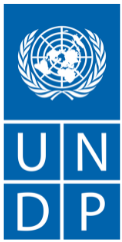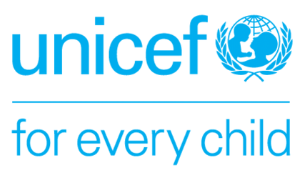14 APRIL 2021 – Over 170 government officials,development cooperation partners and civil society members met virtually toshare early lessons from the design and implementation of Integrated NationalFinancing Frameworks (INFFs).
The United Nations Development Programme (UNDP), theUnited Nations Department of Economic and Social Affairs (UN DESA) and theEuropean Union held the virtual event on the sidelinesof the 2021 United Nations Economic and Social Council (ECOSOC) Forum onFinancing for Development.
Mobilisingresources, both domestic and global, to support sustainable development remainsa challenge for many developing countries. The economic impact of Covid-19 hasmade this even harder.
INFFscan strengthen recovery from the pandemic and regain progress toward the SDGsby helping countries better mobilise financing, manage risks and coordinateinvestments.
INFF momentum is growing. More than 70 countries have startedINFF development and implementation. Over half have formalised or are in theprocess of formalising INFF oversight committees. G20 member countries and internationalfinancial institutions, including the International Monetary Fund, are engagingwith INFF partners and participants at the global and country level.
The April event also marked the launch of the INFF Knowledge Platform, a digitalspace for INFF partners to gather and share all INFF-related knowledge,lessons, resources and tools.
Fundamentally, the success of national financingframeworks will hinge on multi-stakeholder collaboration and the commitmentof leaders, policymakers and technical administrators across sectors and levelsof governance. One of the strengths of an INFF, explained Erica Gerretsen, ActingDirector for Sustainable Finance, Investment and Jobs, Economy that works forthe People, at the European Commission, is that it creates a framework fordialogue between government, private sector, civil society and developmentpartners.
In Ghana, the government has adopted a bottom-upapproach for securing buy-in and rolling out the INFF process. ‘We wanted tostart small and scale up,” said Nana Yaw Yankah duringthe virtual event. Mr Yankah is a chief economist at Ghana’s Ministry ofFinance.
Ghana’s government decided to pioneerthe INFF process because of its need to bring together all financing policies toaddress the country’s financing challenges, explained Mr Yankah. The INFFprovided the government with a comprehensive framework to mobilise a broad rangeof resources and better manage and monitor existing financial flows.
Ghana believes in decentralisation.Instead of developing a financing framework at the national level and scalingdown, the country started its INFF process at the district level. Currently,five districts are piloting Integrated Assembly Financing Frameworks (IAFF). Mr.Yankah explained how the plan is to scale up the approach and support all 255district assemblies to replicate the process. These sub-national financingframeworks will form the foundation of the INFF.
This bottom-up approach relies onleadership and ownership at the local level. “District government officials need to own the process so that they can implement it going forward,” said Mr Yankah.“That’s why they are leading the process.”
Once each district develops an IAFF, thenational government, led by the Ministry of Finance, will aggregate theframeworks to form an INFF at the national level. The success of the INFF inGhana is underpinned by backing from its finance minister and support from leadimplementation partner, UNDP.
During the discussion, panellists agreed that INFFsshould be complemented by strong partnerships and actions at the global level.The next steps include finalising the INFF methodology and drawing out lessonsand experiences from early INFF implementation to support other countries. TheINFF Knowledge Platform and INFF dashboard willplay a central role in this effort.
In closing, Navid Hanif, Director of Financing forSustainable Development Office at UN DESA, emphasised the long-term horizon ofan INFF. “When we analysed the national development strategies presented at theHigh-Level Political Forum more than three years ago, more than 70% had nofinancing strategies,” said Mr Hanif. “It was an aspirational goal.”
INFFs are a very concrete step in the right direction,putting governments in the driver’s seat. Governments are using INFFs as a “dockingstation” to explore hundreds of innovations across public and private finance. Today,over 58 countries are developing new or strengthening existing financingstrategies. “The INFF is not an endpoint; it is a process. INFFs will serve asa platform for financing the SDGs in the years to come.”












.png)


